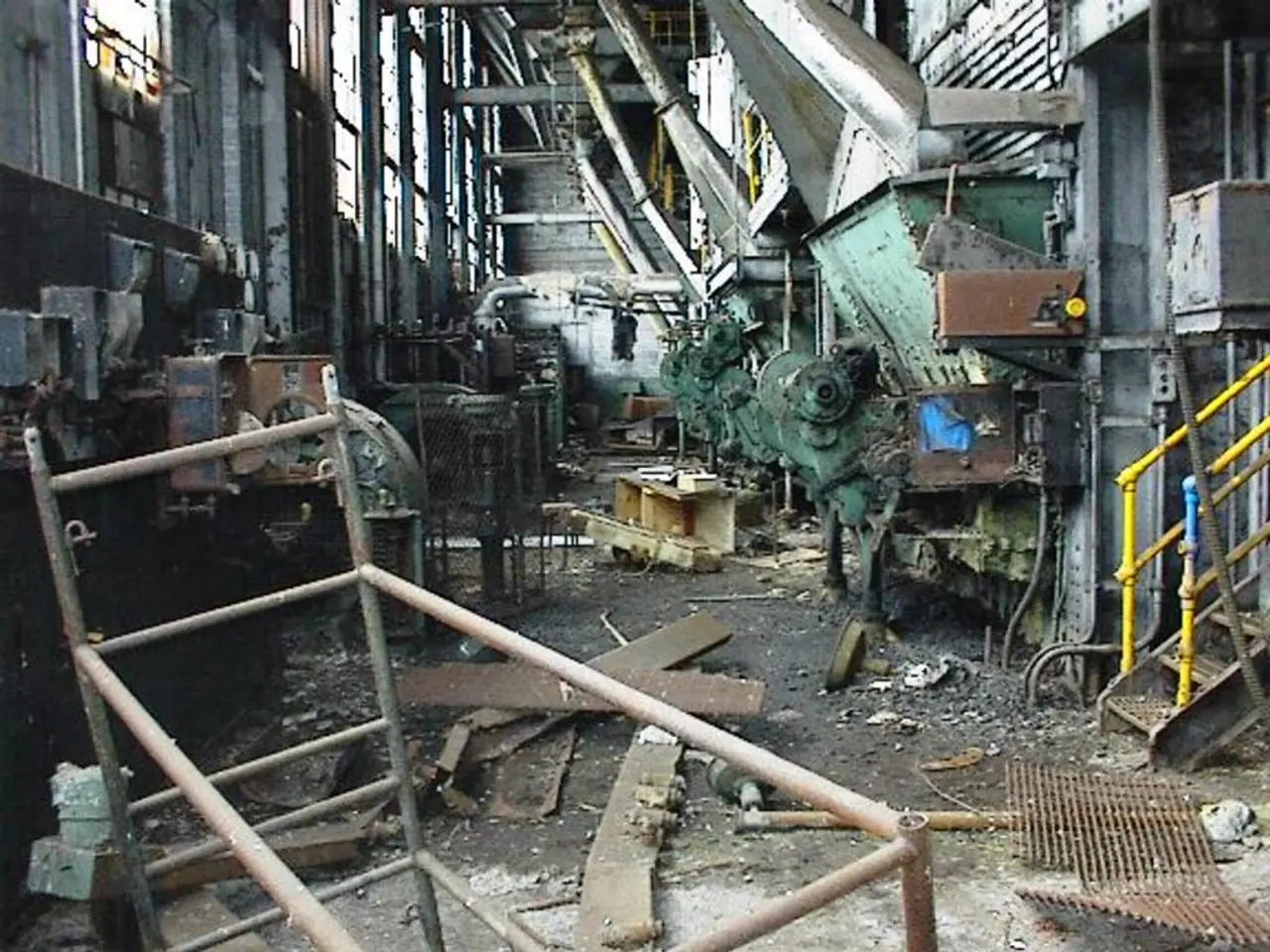Decreased domestic demand hinders machinery sector's orders placement - Machine industry orders facing a decline due to domestic demand decrease
The German machinery industry, with Baden-Württemberg as a significant hub, is navigating a cautiously optimistic yet challenging economic environment. According to recent reports from the Statistical Office of the State, the machinery industry in Baden-Württemberg has been grappling with prolonged order backlogs over the past two years.
Despite these challenges, the industry has displayed some signs of recovery. In April 2025, new domestic orders in Germany increased by 0.6% month-on-month, with capital goods orders surging by 4.1%, indicating growing demand for advanced machinery and equipment. This growth is primarily driven by sectors such as computer/electronic products and transport equipment, reflecting stabilization in global supply chains and rising defense spending.
However, the growth in domestic orders is counterbalanced by a decrease in orders from within Germany. Specifically, orders from Baden-Württemberg decreased by six percent from March to May, while orders from EU countries have been driving the increase in orders from abroad. The machinery industry in Baden-Württemberg recorded orders that were seven percent above the previous year's level from March to May, primarily due to the increase in orders from EU countries.
The industry's recovery is also affected by the ongoing uncertainty in international trade, particularly due to new US tariffs and protectionist policies. This has dampened export growth and industrial production, causing a notable fall of 1.4% in Germany's industrial production in April 2025. Exports are expected to decline significantly in 2025 before slightly improving in 2026.
Cost pressures and input inflation are another challenge facing the industry. Inflation of input costs reached a 14-month high in April 2025, squeezing margins for machinery manufacturers. Additionally, the German industrial sector, including machinery, has seen significant job cuts, with over 100,000 industrial jobs lost in a year.
The machinery industry is a key industry in Baden-Württemberg, employing almost a quarter of the more than 1.3 million industrial workers in the southwest. It ranks second in terms of turnover, contributing significantly to the economy of the region.
The VDMA, the Mechanical Engineering Industry Association, is likely focusing on advocating for stable trade policies, supporting innovation and digital transformation initiatives, promoting infrastructure and defense spending, providing guidance and data to members, and engaging with policymakers to encourage measures boosting industrial demand and reducing economic headwinds.
In conclusion, the German machinery industry, including Baden-Württemberg, is in a fragile recovery phase with cautious growth in domestic and some export orders, counterbalanced by inflationary pressures and trade uncertainties. The VDMA is poised to support manufacturers through advocacy and strategic initiatives to stabilize and grow the sector amid these trends.
- In an effort to support the continued growth of Baden-Württemberg's machinery industry, policies fostering vocational training and skills development within the workforce could be a strategic approach, ensuring a well-equipped workforce for the industry's future needs.
- To promote business growth and competitiveness in the German machinery industry, particularly during uncertain economic times, financial scholarships and grants for innovative technologies and initiatives in vocational training, industry research, and digital transformation could be considered as part of the community policy.




